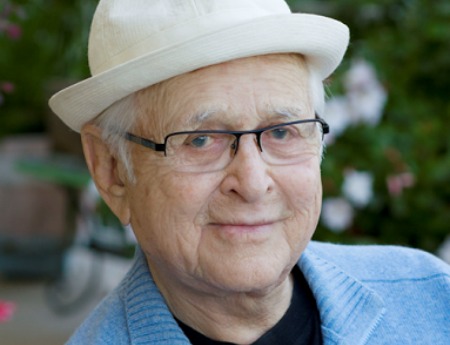Norman Lear: The Original Disruptor

The smarter way to stay on top of broadcasting and cable industry. Sign up below
You are now subscribed
Your newsletter sign-up was successful
Miami Beach, Fla.— “I get a lot of credit for a lot of things,” TV writer-creator-producer and author Norman Lear said after receiving a standing ovation as he took the stage for NATPE’s opening keynote Tuesday morning in Miami Beach.
In the conversation that followed the opening applause, Lear revealed a big reason he probably deserves even more credit for the look of the TV landscape than he already gets.
In addition to his actual credits —which include All in the Family, The Jeffersons, Maude, Good Times, Mary Hartman, Mary Hartman and Sanford and Son— the prolific Lear is of course known for tackling touchy subjects within the many hours of primetime TV he produced.
Sex, rape and racism were among the things “we learned about” watching Lear’s shows, moderator and Everybody Loves Raymond creator Phil Rosenthal said. “On behalf of everybody, I want to say how dare you.”
“We were paying attention to what our families were talking about,” Lear explained.
But he also disrupted the financial arrangement of creating TV early in his career when he decided he should own his shows. Other creators during Lear’s early days in the business didn’t own what they were making, he said.
“They created shows they didn’t own and I thought as the creator of the show I ought to own something,” he said. He partnered with Jerry Perenchio to create a company and Perenchio later brought in Alan Horn.
The smarter way to stay on top of broadcasting and cable industry. Sign up below
Lear marveled at how TV has evolved since those days. Taking paper out of his pocket with notes on it, he rattled off some stats: “113 cable networks. Plus the (broadcast) networks and 32,828 hours of primetime content. Holy sh*t. I mean that’s a lot,” he said.
Rosenthal added: “And that’s not counting Netflix, Amazon, Youtube….”
When Rosenthal asked Lear if he ever set out to make trouble, Lear indicated he was surprised by some of the reaction to his work.
“I am a serious man. I see the foolishness of the human condition really well. I see life through the end of the telescope that sees the comedy,” he said, adding, “We were doing the shows that we saw in our lives impacting us…So when you talk about abortion or you talk about breast cancer…it was right out of our lives and the newspapers.”
“I didn’t think anybody would have a problem with the lives that they’re leading being depicted,” Lear said.
